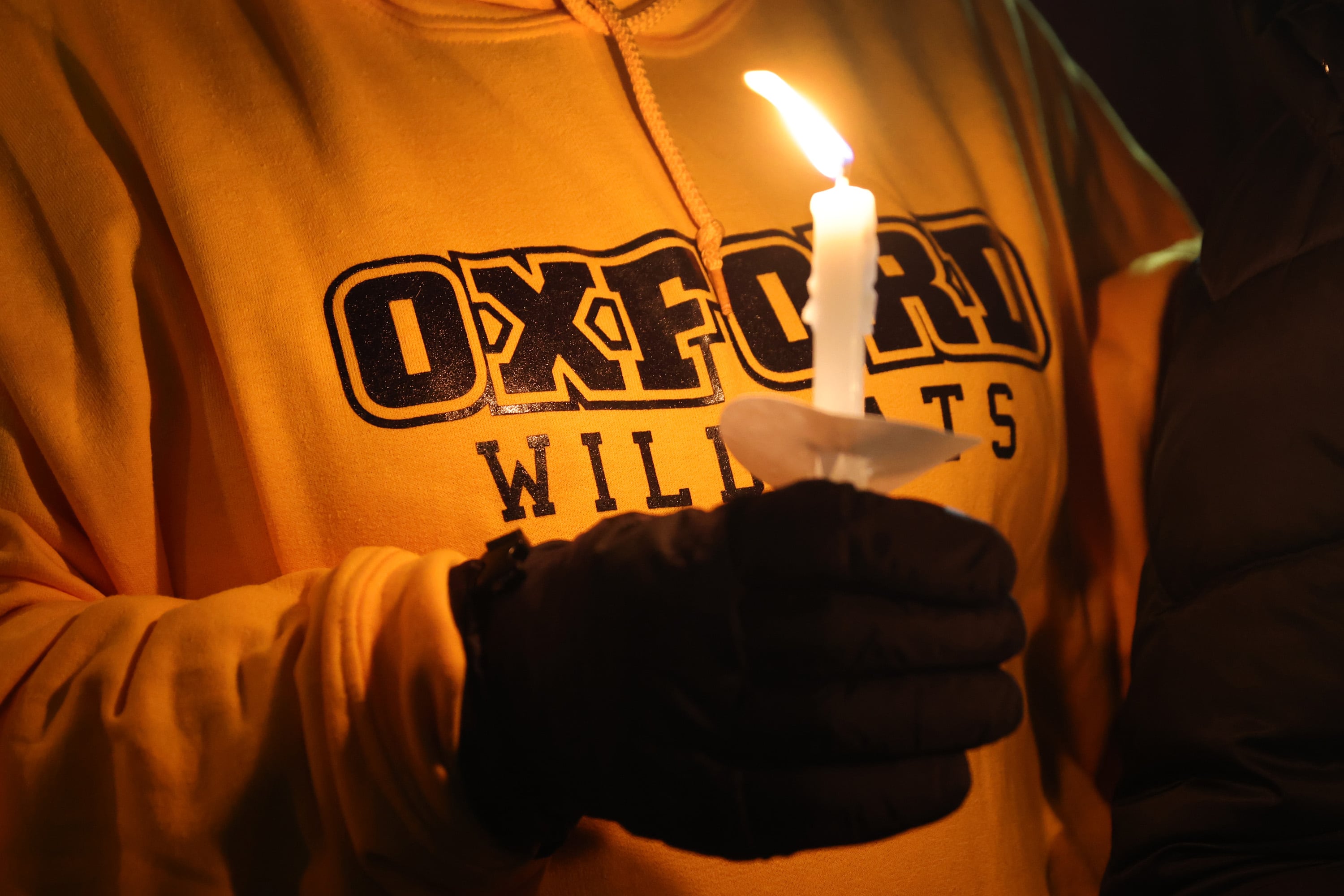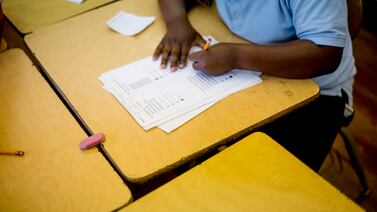Sign up for Chalkbeat Detroit’s free newsletter to keep up with the city’s public school system and Michigan education policy.
A state commission created in the wake of the 2021 deadly school shooting at Oxford High School has issued a final report that calls for steps to improve school safety, reduce youth suicides, and strengthen the mental health of students and their families.
The School Safety and Mental Health Commission was created in 2022 because of the Oxford shooting, which left four students dead, but also because of the student mental health challenges that soared during the pandemic and continue to be a concern.
Terry Dangerfield, superintendent for Lincoln Park Public Schools in Wayne County, said in a Thursday press release about the report that data shows about 16.5% of children between the ages of 0 and 17 have a diagnosable mental health disorder, and one in five have emotional or behavioral concerns.
“These numbers represent real students in classrooms who are trying to learn while struggling with anxiety, depression, trauma, or other serious concerns, ” said Dangerfield. Michigan, he said, must invest in mental health resources to ensure students not only succeed academically but are able to “lead healthy, full lives.”
The report, which is dated April 14 but was publicly released Thursday, includes 10 recommendations for policymakers. It comes at a time when Michigan lawmakers have made school safety a priority. In January, Gov. Gretchen Whitmer signed into law legislation that would require every public school to have a behavior threat assessment and management team, require the Michigan State Police to create standardized terminology for use during school emergencies, and require the MSP to make training available to schools on how to use threat assessment materials, among other new initiatives.
Lawmakers in the Michigan Legislature are currently weighing additional safety bills that would create a comprehensive “school-community mental health system” and put additional crisis teams in schools.
Here are some of the recommendations. To read the full report and all of its recommendations, go here.
- The state must provide consistent funding on a per pupil basis to support schools in ensuring they are provided with the resources needed to support their students.
- The state must work with schools to ensure that the true impact of policy changes is understood, because policy changes can create additional burdens for districts and require them to hire additional staff or enter into costly contracts. Michigan schools currently struggle to hire mental health professionals because of shortages.
- Minimize risk for suicidal behaviors by promoting safe environments, resiliency, and connectedness. Increase awareness of warning signs, provide opportunities for selective screening of high-risk youth, train on risk assessment and communication strategies for youth at-risk for suicide, and improve referral channels to facilitate care for youth at-risk for suicide in their communities.
- Increase and expand access to care to support those at risk of suicide.
- Improve suicide prevention training and education for school staff and volunteers.
- Continuing to expand the 988 (a suicide and crisis hotline) line’s accessibility, including adding text and chat capabilities, with the aim of reducing youth suicide Michigan.
Lori Higgins is the bureau chief for Chalkbeat Detroit. You can reach her at lhiggins@chalkbeat.org.







